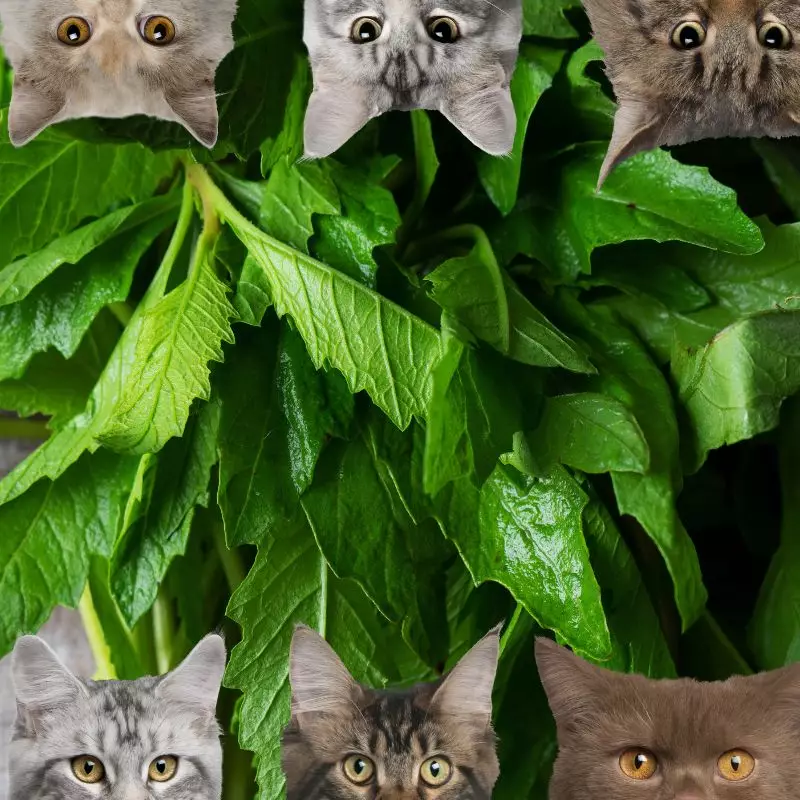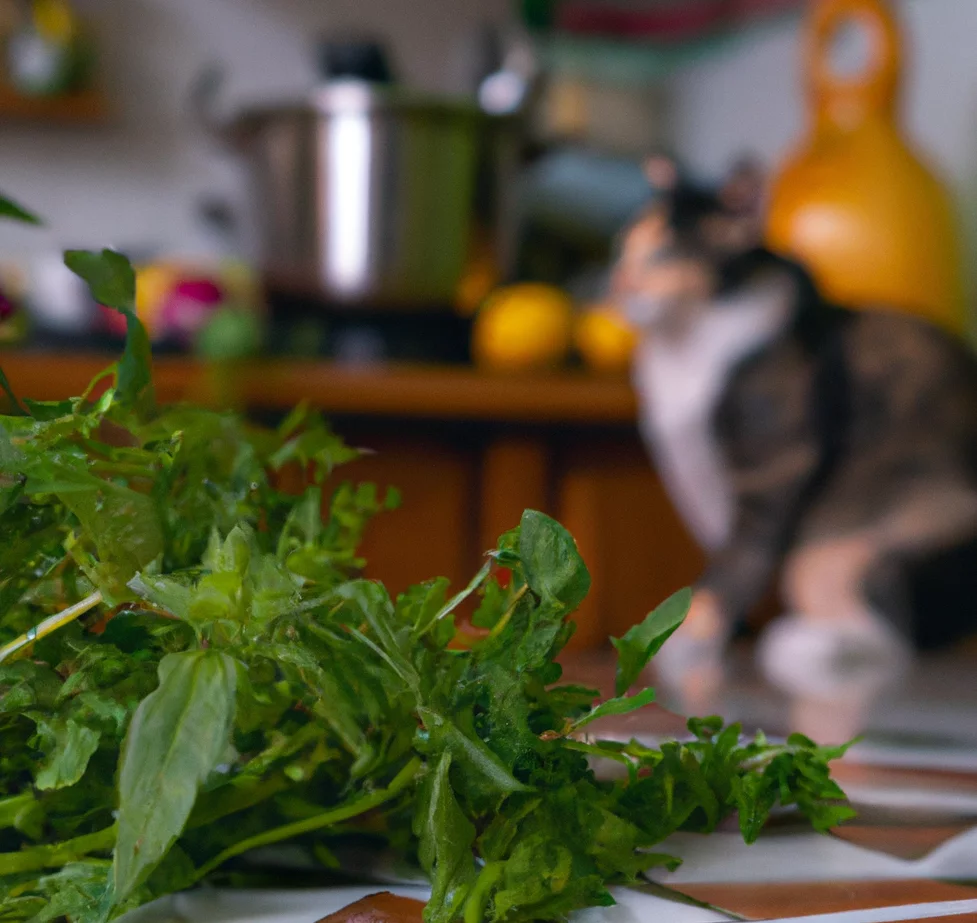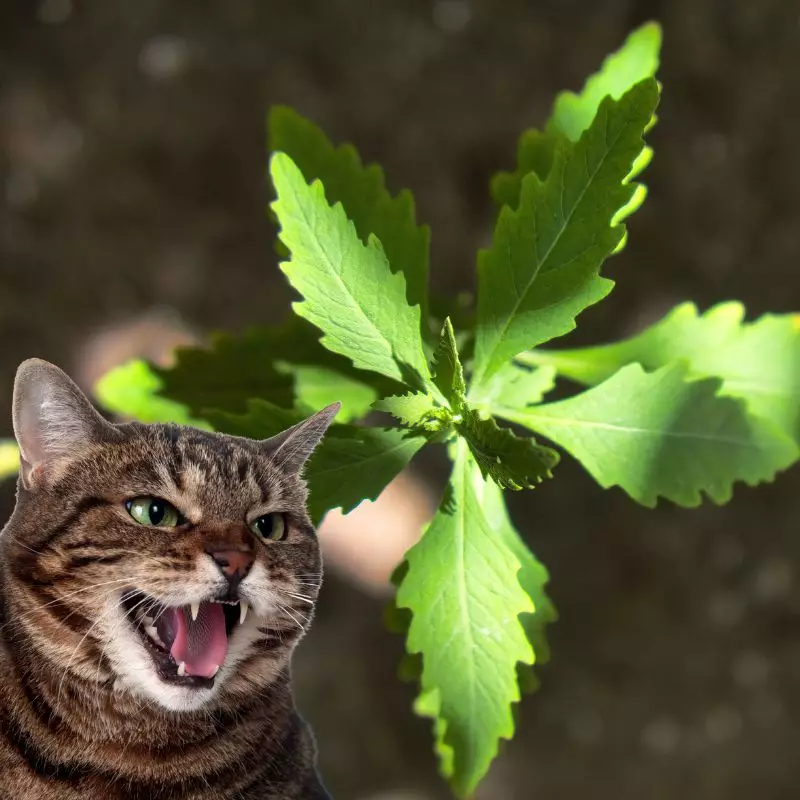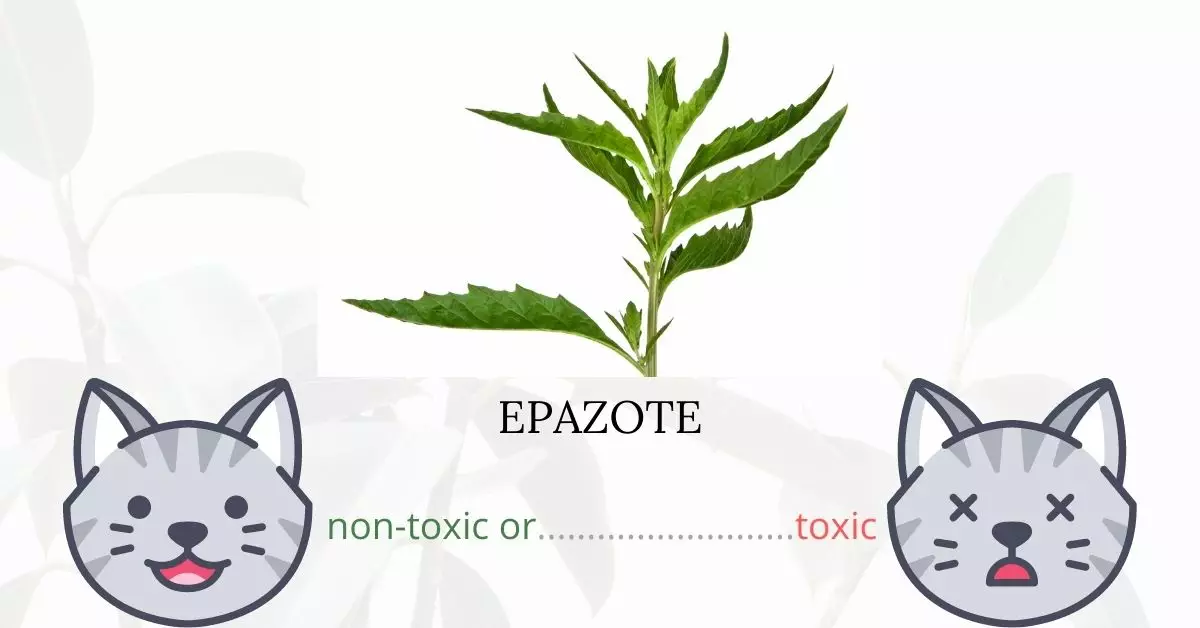Yes, Epazote, also known as Wormseed, Jesuit’s Tea, Mexican Tea, and Paico, can be harmful to cats due to the presence of substances such as oxalates, nitrates, cyanogenic glycosides, and ascaridole. These compounds can lead to gastrointestinal distress and cardiac irregularities in felines. It’s essential to note that the potential toxicity of these plants often stems from the environmental conditions present during their growth and not solely from the naturally occurring poisonous compounds.
This article has been written in collaboration with a team of experienced DVMs (doctors of veterinary medicine). With their invaluable insights, we strive to offer accurate and up-to-date information about the risks various plants pose, specifically focusing on Epazote in this instance. Furthermore, our team has diligently researched authoritative websites, including ASPCA and PetMD, to ensure comprehensive coverage on the topic.
Clinical Signs of Epazote or Wormseed Poisoning in Cats

When a cat comes into contact with, or ingests, the Epazote plant, several clinical manifestations can occur due to the plant’s inherent toxic compounds. Below are detailed descriptions of these symptoms and the reasons behind their occurrence:
- Gastrointestinal upset: The ingestion of Epazote often leads to irritation in the cat’s gastrointestinal tract because of the presence of oxalates and other compounds.
- Vomiting and Diarrhea: The body’s natural response to expel the harmful compounds consumed.
- Depression: A potential central nervous system reaction to the toxic elements within the plant.
- Rapid and labored breathing: Caused by the body’s reaction to cyanogenic glycosides, which can interfere with oxygen absorption.
- Dark mucous membranes: Indicative of decreased oxygen levels or internal bleeding.
- Weakness and Sleepiness: A result of the body’s energy being diverted to combat the toxins.
- Tremors and Ataxia (loss of coordination): Neurological responses to the toxic compounds in the plant.
- Staggering: Reflects the effects of the poison on the cat’s nervous system and balance.
- Seizures: Severe neurological reactions caused by the toxic components of the plant.
- Cardiac irregularities: The ascaridole present in the plant can interfere with the heart’s regular functioning.
- Hypocalcemia-type signs: Caused by the plant’s oxalate content, which can bind to calcium, leading to decreased levels in the bloodstream.
- Coma: A severe neurological response to the plant’s toxins, leading to a complete shutdown of the cat’s consciousness.
- Death: In extreme cases, the cumulative effects of these symptoms can be fatal if not treated promptly.
It’s imperative to consult with a veterinarian immediately if your cat displays any of these signs after potential exposure to the Epazote plant.
First Aid and Treatment of Epazote or Wormseed Poisoning in Cats
 It is important that the mild symptoms be addressed immediately before your cat’s situation worsens. Veterinary treatment may include intravenous fluid therapy, inducing vomit, activated charcoal, and gastric lavage, depending on your cat’s needs.
It is important that the mild symptoms be addressed immediately before your cat’s situation worsens. Veterinary treatment may include intravenous fluid therapy, inducing vomit, activated charcoal, and gastric lavage, depending on your cat’s needs.
The most common treatment for nitrate poisoning is methylene blue. Methylene blue converts non-oxygen-carrying methemoglobin to hemoglobin quickly by decreasing the ferric iron in hemoglobin to the ferrous state, allowing the blood to accept and transport oxygen to the body’s important organs once more.
It has been proposed that taking mineral oil orally as a cathartic can aid accelerate defecation, reducing the amount of time high nitrate material stays in the gastrointestinal system and is available for conversion to nitrite.
Recovery from Epazote or Wormseed Poisoning in Cats

The prognosis will range from promising to guarded if therapy is started promptly and continued for a significant amount of time, and the high nitrate source can be eliminated. Symptoms may still occur for up to a week or longer. Ensure to follow your veterinarian’s orders after treatment for your cat’s fast recovery.
Prevention of Epazote or Wormseed Poisoning in Cats
Build additional security in your houses such as high fences and safety nets to restrict your cat’s access outdoors and prevent them from straying away from home. Keep them safe, healthy, and comfortable inside your house.
If you love plants but have cats at home, check out these lists:





